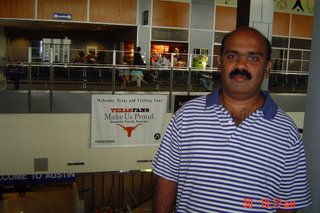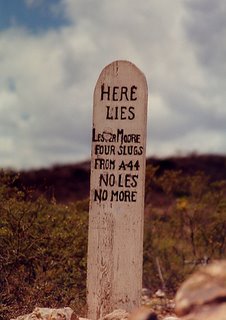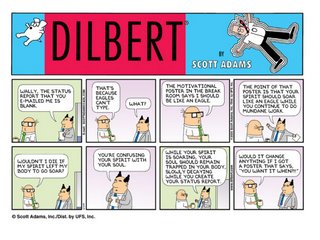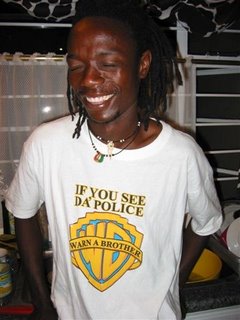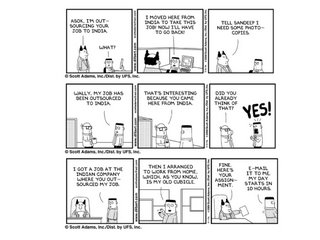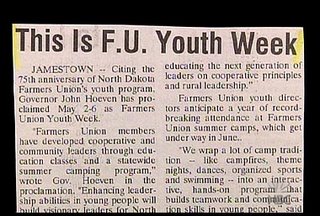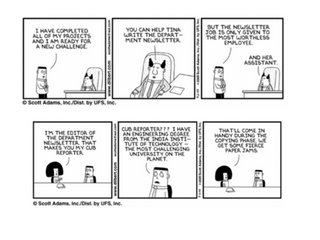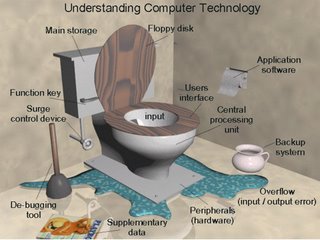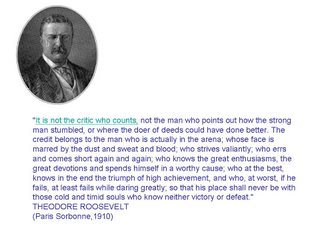Yesterday while driving home, I was thinking about the (unnecessary) Iraq war and deaths (both allied and Iraqi forces) of unfortunate people. I felt like checking on how deaths in Kurukshetra (Mahabharata) compare to those in the modern wars. Thanks to Google, right or wrong, I
gathered a set of numbers to work with, in 2 minutes!
This war was perhaps the bloodiest war in history as most of the warriors and soldiers perished during the brief period of only eighteen days. Arjuna, in a fit of extreme anger over the death of his son Abhimanyu, alone killed one akshauhini of Kaurava soldiers in a single day. The war left an extremely large number of widows and orphans and led to an economic depression and beginning of Kali Yuga.
A division (akshauhini) includes 21,870 chariots and chariot-riders, 21,870 elephants and riders, 65,610 horses and riders, and 109,350 foot-soldiers (in a ratio of 1:1:3:5). The combined number of warriors and soldiers in both armies was approximately four million.
I thought Kali Yuga applies to the whole earth rather than to just one country. Though the death toll was large, I wonder if it was a significant percentage of the world population then, qualifying this war as the trigger for Kali Yuga. Anyway, killing one Akshauhini in a day amounts to Arjuna killing enemies at the rate of 5 enemies/second for ~13 hours straight!! See the small table I put together (below):
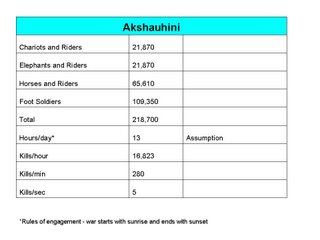
I see three possible explanations (or any combination of these) for this phenomenal occurrence:
(1) Arjuna was ultra fast with bow and arrows,
(2) Arjuna used weapons of mass destruction (WMD) like
Agneyastra, and
(3) Arjuna was able to manipulate the energy (i.e., killing without using any material objects) to his advantage for causing the destruction he desired.
Let us examine each of these three possibilities:
(1) It is just not possible for a human being to kill ~250,000 people in a day, using conventional weaponry; period!
(2) If Arjuna used weapons like Agneyastra, the scriptures probably were metaphorically referring to WMDs like nuclear weapons. If he used such weapons, there should at least be some remnants as evidence. If
Abhimanyu's fort survived the time until now, the material used for manufacturing these weapons (like carbon steel, titanium, etc.) should survive time too; I didn't hear of any of these findings in archeological excavations so far.
(3) If Arjuna was capable of manipulated the energy so well, why would he need a chariot? Why would someone put an innocent animal at risk when they can just do everything remotely or while floating in the air?
Also, imagine mobilizing 4 million people into a small city over 18-day period. Will they have enough space to move around, leave alone space for chariots and elephants? Kurukshetra is not such a big place. But 4 million is a number close to 70% of the population of
Hyderabad, India. Even though Hyderabad is a much larger city than Kurukshetra, we can see how dense it is (population wise) with ~ 6 million population. Imagine cramming 70% of these people into a battle field much smaller in size.
When a war of this magnitude had occurred, we should be able to find artifacts of the weapons used. I had the pleasure of working with
Mike when I was in consulting. He used maintain a fairly large archeology lab in my previous office, with thousands of carefully catalogued artifacts (I realized how painful it is to write #s on ~ one-inch long objects). Mike used to show me some really interesting BCE
arrowheads that he found during archeological digs in
Indian Burial Grounds. If we were able to find
projectiles from a scarcely populated cultures in North America, I am curious as to why I haven't heard of findings of
arrowheads from Mahabharata war. If a pralaya had occurred and destroyed this evidence, then
Abhimanyu's fort should have been totally destroyed too.
I see a possible explanation for all this. Whoever wrote some of these scriptures, could have done so under the influence of some hallucinogens like
physchedelic mushrooms:-). It is quite possible for people to consume these things on a regular basis, when it was not a taboo. Remember, not too long ago, people were allowed to smoke in airplanes. Once the author gets high, coupled with energy-consuming activities like chanting and dancing, it is not impossible to have visions of grandiose things!
Soma (Sanskrit), or Haoma (Avestan), from Proto-Indo-Iranian *sauma-, was a ritual drink of importance among the early Indo-Iranians, and the later Vedic and greater Persian cultures. It is frequently mentioned in the Rigveda, which contains many hymns praising its energizing or intoxicating qualities.
It is described as prepared by pressing juice from the stalks of a certain mountain plant, which has been variously hypothesized to be a
psychedelic mushroom, cannabis, peganum harmala, or ephedra. In both Vedic and Zoroastrian tradition, the drink is identified with the plant, and also personified as a divinity, the three forming a religious or mythological unity.
When it comes to religion, ardent followers of all major religions are alike, be it Christianity, Islam, or Hinduism. We vehemently oppose reasoning when it does not support our belief. However, when reasoning slightly supports our theories, we wouldn't hesitate to claim things like "Germans have designed their WW II battle tanks based on writings in Atharvana Veda" etc. For most of us, if it is written on a
palm leaf, it has to be true! All the theories we are proposing these days don't turn out to be valid. Some get disproved fairly quickly. Why should we assume that everything said ~ 4000
BCE should be written in stone? If we believe in things without asking questions, we should allow the others to do the same without commenting. I think we (Janata) need to use logic consistently across the board!
Sure, everything available on the web can be utterly wrong. Let's just realize that the same doubt should be applied to our ancient scriptures too.
Bottom line - Don't think, just pray. I realize that we can't explain everything with our limited knowledge and unlimited prejudices! Read religious texts in conjunction with constant prayer and meditation, and use learning to the extent that it make sense. Because, through prayer, we may understand things that never used to makes sense to us before. If we don't read, there would be no question of making sense of things that we don't know.
Therefore, I think prayer and shedding ego (
Dr. Wayne Dyer defines ego as
Edging
God
Out) should be supplemented with reading of the religious texts. Try to take the good things out of them, put them to use, and discard the bad things like
animal sacrifices . With meditation, I think we can learn to discriminate good from bad, as the demarcation is not always clear. I mean, sometimes, unfortunately, we have to do bad things in the short-term (e.g., if there are things like justified wars) for a greater good in the long-term (e.g., establishment of
Rama Rajya)
